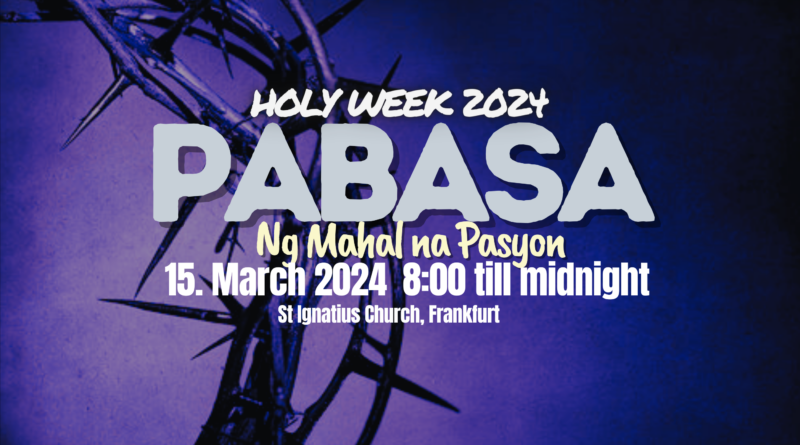Pabasa
The “Pabasa” is a Filipino Catholic tradition associated with the observance of Holy Week, particularly during Lent. The term “Pabasa” is derived from the Filipino verb “basahin,” which means “to read.” It involves the continuous chanting or singing of the “Pasyon,” a narrative poem that recounts the life, passion, death, and resurrection of Jesus Christ.
The Pasyón is typically written in Tagalog and is based on the “Pasyon ni Hesus Kristo,” a poetic narrative attributed to Gaspar Aquino de Belen, a Filipino poet from the 18th century. The Pasyon is divided into several parts, and it is common for groups of people, often family or community members, to take turns reading or singing it aloud. This practice usually starts on Holy Monday and continues non-stop until Good Friday.
The Pabasa is a form of devotional activity that serves as a way for Filipino Catholics to reflect on the suffering and sacrifice of Jesus Christ during the Lenten season. It is deeply rooted in Philippine culture and is a communal expression of faith and piety. The Pabasa is often held in homes, chapels, or community centers, creating a sense of solidarity and shared religious experience among participants.
The early forms of the Pabasa were introduced to the various indigenous peoples of the archipelago by Spanish friars spreading the Catholic faith. Over the period of Spanish colonial rule from the late 16th century until 1898, indigenous Filipinos adapted the religious chanting and incorporated it to the ancient custom of singing epics during the celebration. The vocal singing style has in many ways, preserved the pre-Hispanic singing techniques of the main groups of the country, like the Tagalog, Ilocano and Visayan ethnic groups.
The Filipino Catholic Community in Frankfurt is practicing the tradition and will hold their Pabasa on the 15th of March 2024.

